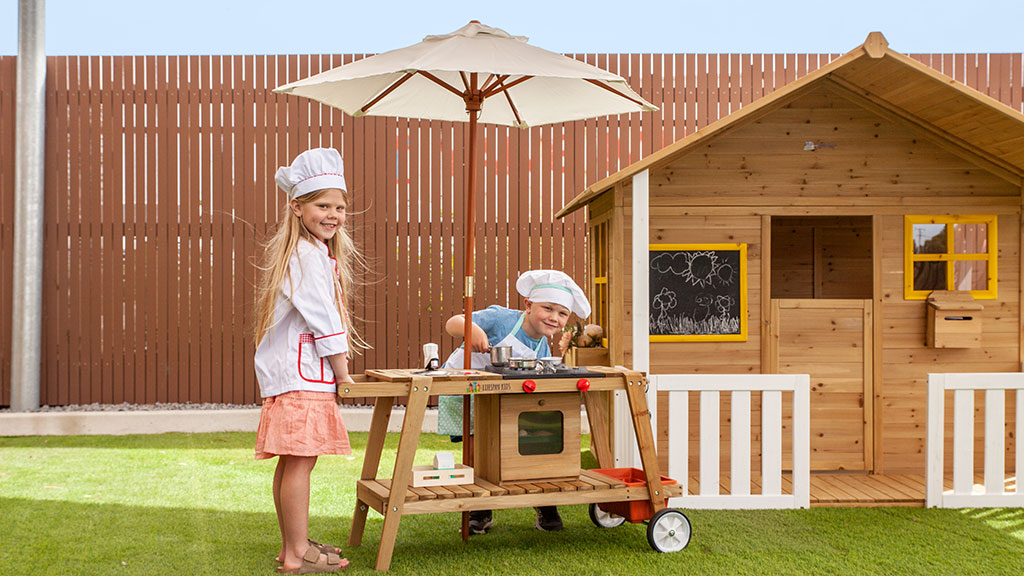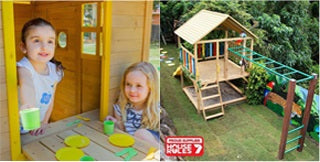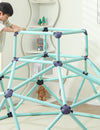The Blog
The Benefits of Play Kitchens in Child Development

This classic roleplay activity is brought to life with our popular range of play kitchens, featuring both retro and modern designs to suit any child. Introducing this timeless play furniture into children's playtime routines offers numerous developmental advantages. Serving as miniature culinary worlds, play kitchens ignite children's imaginations and creativity. Through pretend cooking, baking and serving meals, kids can explore their imagination and experiment with various roles and stories. This makes them excellent tools for early development. They provide children with opportunities to engage in imaginative play, enhance their cognitive skills and develop their social and emotional intelligence from a young age.
Why kids love play kitchens

One of the primary reasons that kids are drawn to play kitchens is the opportunity for imaginative play. Play kitchens offer children the chance to step into the roles of chefs, cooks and restaurant owners. Through imaginative scenarios, they can pretend to cook meals, serve customers and run their own culinary adventures. This type of play allows children to explore their creativity, experiment with different roles and engage in storytelling, all within the safe and imaginative space of the play kitchen.
Social Skill Development

When children engage in play kitchen activities with friends, they learn valuable social skills such as sharing, taking turns and cooperating. Through collaborative play, they develop communication skills and learn to work together to achieve common goals, fostering positive social interactions and friendships. As children play in the kitchen, they encounter various challenges and opportunities for problem-solving. From deciding what to cook to resolving conflicts over who gets to use which utensil, children learn to negotiate, compromise and find solutions independently or with the help of peers, enhancing their problem-solving abilities and emotional intelligence.
Motor Skills Development

Engaging with play kitchen accessories offers children valuable opportunities to enhance their motor skills. Manipulating play kitchen accessories such as pots, pans, utensils and pretend food items requires fine motor skills and hand-eye coordination. Children practice grasping, holding and manoeuvring objects as they mimic cooking actions like stirring, pouring and slicing. These activities help refine their dexterity and control, promoting the development of both gross and fine motor skills essential for various daily tasks and activities.
Learning

Through play kitchen activities, children can learn incidentally about healthy eating habits, food groups and nutrition. They can pretend to cook and prepare meals using a variety of ingredients, fostering an understanding of where food comes from and how it's prepared. Additionally, children can engage in role-playing scenarios that promote discussions about balanced diets and the importance of making healthy food choices. These activities provide children with an early introduction to the concept of a kitchen and its various components. As they interact with miniature stoves, sinks and countertops, they develop a basic understanding of kitchen layout and functionality. This early exposure lays the foundation for future kitchen skills and builds a sense of comfort and familiarity with the kitchen environment.
Conclusion

Play kitchens play a crucial role in child development by fostering creativity, promoting social interaction enhancing motor skills and facilitating learning opportunities. Through imaginative play, children can explore their culinary interests, develop essential social and problem-solving skills, refine their motor coordination and gain early insights into healthy eating habits and kitchen functionality. The immersive experiences provided by play kitchens not only spark joy and curiosity but also lay the groundwork for lifelong skills and behaviours. By incorporating play kitchens into children's playtime routines, you can support their holistic development and encourage a love for learning and exploration from an early age.
If you have any questions about our range of play kitchens, or any other early development toy, feel free to reach out to our friendly team and we'll be happy to answer any questions you may have.















 Shop now, Pay Later
Shop now, Pay Later







